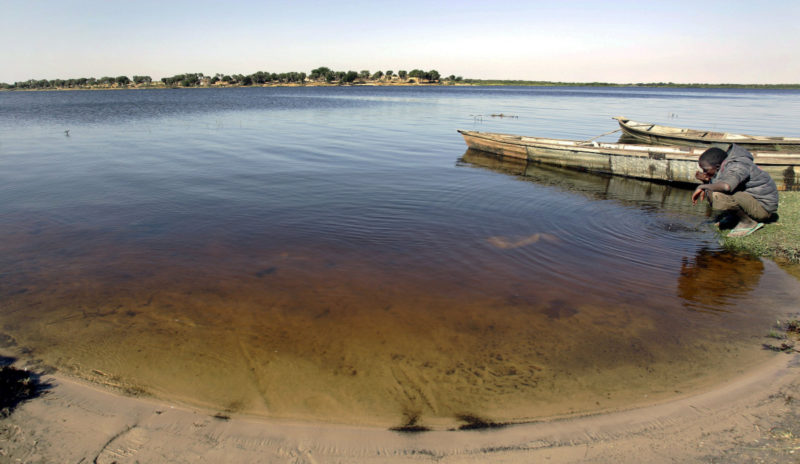“As the climate is changing, so too are the conditions within which non-state armed groups such as Boko Haram and ISIS operate. Climate change contributes to creating a fragile environment in which these groups can thrive.”

These few lines appear to capture the essence of the outcome of a recent study that attempts to specifically and comprehensively spell out the links between climate change, fragility and non-state armed groups (NSAGs).
Prepared by Adelphi, International Alert and The Wilson Centre, the report stresses that, around Lake Chad for example, climate change contributes to resource scarcities that increase local competition for land and water, adding that the competition in turn often fuels social tensions and even violent conflict.
Titled: “Insurgency, Terrorism and Organized Crime in a Warming Climate. Analysing the Links Between Climate Change and Non-State Armed Groups”, the study analyses Boko Haram in the Lake Chad region, ISIS in Syria, the Taliban in Afghanistan, and urban violence and organised crime in Guatemala.
The report notes that, as resource scarcity erodes the livelihoods of many people, aggravates poverty and unemployment, and leads to population displacement, NSAGs, in particular Boko Haram, thrive in such a fragile environment.
“In this context of contested authority and legitimacy, Boko Haram can operate more easily and engage not only in acts of violence but also in transnational organised crime,” writes Lukas Rüttinger, a senior project manager at Adelphi, adding:
“At the same time, as climate change degrades yields from agriculture, cattle rearing and fisheries, many people are left unemployed, with few economic opportunities and low levels of education.This makes them extremely vulnerable not only to negative climate impacts but also to recruitment from terrorist groups such as Boko Haram.”
The report concludes that climate change is interacting with NSAGs in three major ways:
- Climate change is increasingly contributing to fragility, mainly by exacerbating conflicts surrounding natural resources and livelihood insecurity. NSAGs proliferate and can operate more easily in these fragile and conflict-affected environments.
- Climate change is having increasingly negative impacts on livelihoods in many countries and regions, e.g. through food insecurity. This makes the affected population groups more vulnerable not only to negative climate impacts but also to recruitment by NSAGs. These groups can offer alternative livelihoods and economic incentives and often respond to political and socio-economic grievances. Another interesting finding is the way non-state armed groups leverage the fragile environments arising from compound climate-fragility risks.
- NSAGs are increasingly using natural resources as a weapon of war. The case studies show that in resource-scarce and fragile environments, NSAGs can use natural resources such as water as a weapon of war. This in turn further compounds and exacerbates resource scarcities. These dynamics might be exacerbated as climate change increases the scarcity of natural resources in certain regions of the world: the scarcer resources become, the more power is given to those who control them.
Rüttinger says: “In the political realm, there is a tendency to frame NSAGs primarily in the context of the war on terrorism. However, these actors are much more complex and diverse. Broadening the perspective and understanding the hybrid and complex nature of NSAGs, the motivations that drive them and the context in which they thrive is indispensable for adequately responding to the security challenges they pose.
“A broader perspective will help to better address the root causes of the rise and growth of NSAGs: While economic, social and political factors remain important, the environmental dimension of fragility and conflict cannot be separated from the other three dimensions. A narrow perspective on NSAGs and the misuse of the concept of ‘violent extremism’ risks downplaying other sources of fragility, delegitimising political grievances and stigmatising communities as potential extremists.”
